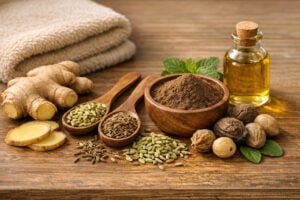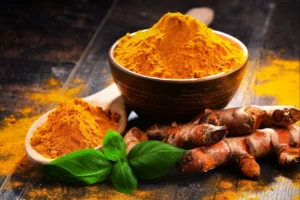
Inflammation, Gut Imbalance & Low Mood: How Ayurveda Brings You Back to Balance
By Dr. Puja Shah
We often think of sadness or fatigue as purely emotional experiences, the result of stress, loss, or overwork. But what if your persistent low mood or mental fog isn’t just “in your head”? What if it begins deep within your gut?
Modern science and Ayurveda both point to the same revelation: inflammation and gut imbalance don’t just affect digestion, they can directly influence your mood, motivation, and sense of vitality.
This is the next evolution in understanding holistic health: realizing that your emotional state and your gut environment are deeply intertwined. And if you’ve been feeling off, tired, or emotionally heavy lately, healing your gut may be the key to lifting your mind.
When the Fire Turns Against You: Understanding Inflammation
Inflammation isn’t inherently bad. It’s the body’s natural way of defending itself. When you get a cut, sprain, or infection, your immune system triggers inflammation to heal and protect.
The problem begins when inflammation becomes chronic, when that protective fire burns continuously, long after it’s needed.
This “silent inflammation” can be sparked by processed foods, stress, lack of sleep, or unresolved emotions. In the gut, it disrupts the delicate balance of your microbiome, weakens the intestinal wall, and triggers a cascade of effects that can alter neurotransmitters like serotonin and dopamine, the very chemicals that govern mood and motivation.
Over time, this inner fire consumes rather than restores, leaving behind fatigue, irritability, brain fog, and emotional dullness.
Ayurveda has understood this dynamic for millennia, though it speaks a different language. It tells us that when Agni, our digestive fire, becomes irregular or excessive, it produces Ama, the toxic residue of incomplete digestion. Ama clogs the body’s channels, irritates the tissues, and spreads inflammation throughout the system, including to the mind.
The result is a body that feels heavy and a mind that feels dimmed.
The Gut–Mood Loop: Science Catches Up to Ayurveda
Today, researchers call this relationship the microbiota–gut–brain axis, a network of communication between gut microbes, the immune system, and the nervous system.
When inflammation disrupts the gut, the body releases cytokines, chemical messengers that can signal the brain to lower serotonin levels and heighten stress responses. In turn, this shifts mood, motivation, and even how you perceive the world.
In simple terms: when your gut is inflamed, your mind feels it too.
Ayurveda mirrors this understanding. A fiery, irritated gut reflects an imbalance in Pitta dosha, often fueled by overstimulation, anger, overwork, or excess heat in diet and environment. Pitta imbalance can manifest emotionally as frustration, agitation, or burnout, and physically as acidity, loose digestion, or skin flare-ups.
Meanwhile, when Ama accumulates and clogs the channels, it clouds mental clarity, leading to a sense of dullness, heaviness, or low inspiration, symptoms of Kapha imbalance.
Both modern medicine and Ayurveda agree: when the gut is inflamed or congested, the mind cannot shine.
The Emotional Cost of Gut Imbalance
You might notice gut-related inflammation not just through physical symptoms, but through subtle emotional cues:
- Feeling lethargic or unmotivated, even after rest
- Increased irritability or anxiety without clear cause
- Brain fog or difficulty focusing
- Strong cravings for sugar or processed foods
- Feeling emotionally stuck or uninspired
In Ayurveda, this is a clear signal that the digestive fire needs to be soothed and rekindled in a balanced way, not suppressed, but guided.
The goal is not to extinguish the inner fire, but to teach it to burn clean again.

Cooling the Inner Flames: Ayurveda’s Path to Calm and Clarity
Ayurveda offers a beautiful, compassionate way to restore harmony: it doesn’t fight inflammation with force, but rather cools, nourishes, and clears the body’s natural intelligence.
Here’s how you can begin:
Eat for Calm, Not Stimulation
Favor meals that are warm, lightly spiced, and easy to digest. Overly spicy, fried, or acidic foods aggravate Pitta and inflame the gut lining.
Choose foods that are both anti-inflammatory and sattvic (promoting peace and clarity):
- Steamed or lightly sautéed vegetables like zucchini, carrots, and spinach
- Whole grains like quinoa, basmati rice, or barley
- Cooling herbs like cilantro, mint, and coriander
- Healthy fats like ghee or flaxseed oil to soothe internal dryness
If you drink coffee or alcohol, notice how your body responds, both can stoke inflammation if consumed excessively. Replace your morning brew occasionally with turmeric–ginger tea or warm water with a splash of aloe vera juice for a gentle reset.
Heal the Gut Wall with Nourishing Rituals
A simple ritual can restore balance:
- Morning: Start your day with a cup of warm water infused with turmeric and a squeeze of lemon to awaken Agni and reduce inflammation.
- Midday: Eat your largest meal when the sun is highest, your Agni is strongest then.
- Evening: Sip cumin-coriander-fennel tea after dinner to aid gentle digestion and prevent toxin buildup overnight.
Ayurveda sees each meal as a sacred act of creation,one that can either restore or disturb your inner world.
Calm the Mind–Gut Axis Through Breath and Stillness
Inflammation is not only physical; it’s emotional. The more we live in reactive states, constantly responding, checking, scrolling, the more heat builds within the nervous system.
Just five minutes of daily stillness can cool that fire. Try Nadi Shodhana (alternate nostril breathing) to balance the left and right hemispheres of the brain, reduce stress hormones, and calm Pitta.
Follow with a few moments of quiet, let your body feel safe again. In this space, healing begins.
Bring in Herbal Allies for Renewal
Ayurveda offers many plant-based supports that cool inflammation while rebuilding digestive strength:
- Guduchi (Tinospora cordifolia): A renowned detoxifier that calms inflammation without weakening Agni.
- Aloe vera juice: Soothes heat in the digestive tract and supports elimination.
- Shatavari: Nourishes the gut lining and balances emotional sensitivity.
- Turmeric: A modern anti-inflammatory hero, used for centuries to purify the blood and uplift mood.
Always consult a qualified practitioner before introducing herbs, especially if you’re on medication.
Reignite Joy Through Lightness and Routine
Healing the gut also means healing your relationship with consistency. Irregular meals, sleep deprivation, and late-night screens confuse both body and mind.
Ayurveda recommends regular rhythm — eating, sleeping, and waking around the same times each day. This steadiness restores not only digestion but emotional stability.
And remember: inflammation thrives on heaviness. So do something that sparks lightness, walk in nature, listen to uplifting music, practice gratitude. These small acts gently shift the chemistry of both your gut and your brain.
A New Way to Understand Low Mood
When you feel low, you’re not broken. You’re being signaled, invited to look inward, to soothe the heat or stagnation within.
Ayurveda reminds us that emotional balance doesn’t come from forcing positivity, but from clearing the blockages that dull our natural joy. When inflammation settles and digestion flows freely, mental clarity, creativity, and optimism naturally rise to the surface.
You don’t need to fix your mood, you need to support your body so your mind can breathe again.
A Simple Practice for This Week
Each morning, sip a glass of warm water with turmeric and lemon. As you drink, set the intention:
“May I release what inflames me and invite what nourishes me.”
Healing begins with awareness and continues with small, sacred choices that honor both your body and your spirit.

About Dr. Puja Shah, Editor-in-Chief of The Natural Law
Dr. Puja Shah is an award-winning author whose 93-year-old grandmother swore by Ayurvedic remedies and practiced yoga into her last days. And so while her education includes 9 years of medical training as a dentist, 3 teaching qualifications in yoga, and dozens of courses in meditation, it’s no wonder that she always goes back to Ayurveda. Puja harnesses Ayurveda regularly with her children and husband Amish Shah, Founder of The Natural Law.
Is Your Gut Behind Your Fatigue, Mood Swings & Poor Sleep?
Ayurveda and modern science agree: when the gut is out of balance, your whole body suffers. Low energy, weight struggles, restless nights, and even emotional ups and downs often start in the digestive system.
Our FREE Ayurveda Gut Masterclass is designed to help you heal and strengthen your gut the natural way. Guided by a panel of Ayurvedic doctors, you’ll discover your unique digestion type, learn how to clear toxic buildup, and explore simple daily tools to restore balance and vitality.
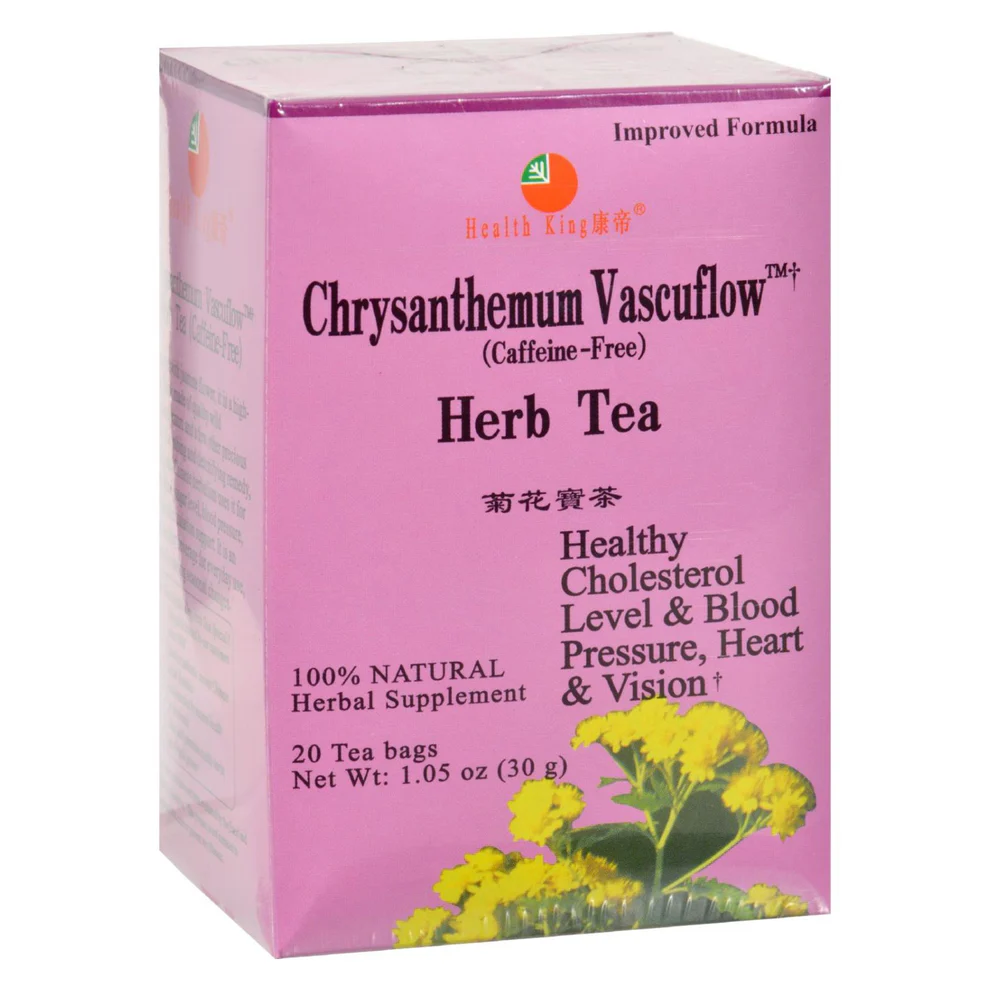
Benefits: Chrysanthemum tea is known for its cooling properties, making it an excellent choice for reducing heat in the body. It also supports vascular health and overall well-being.
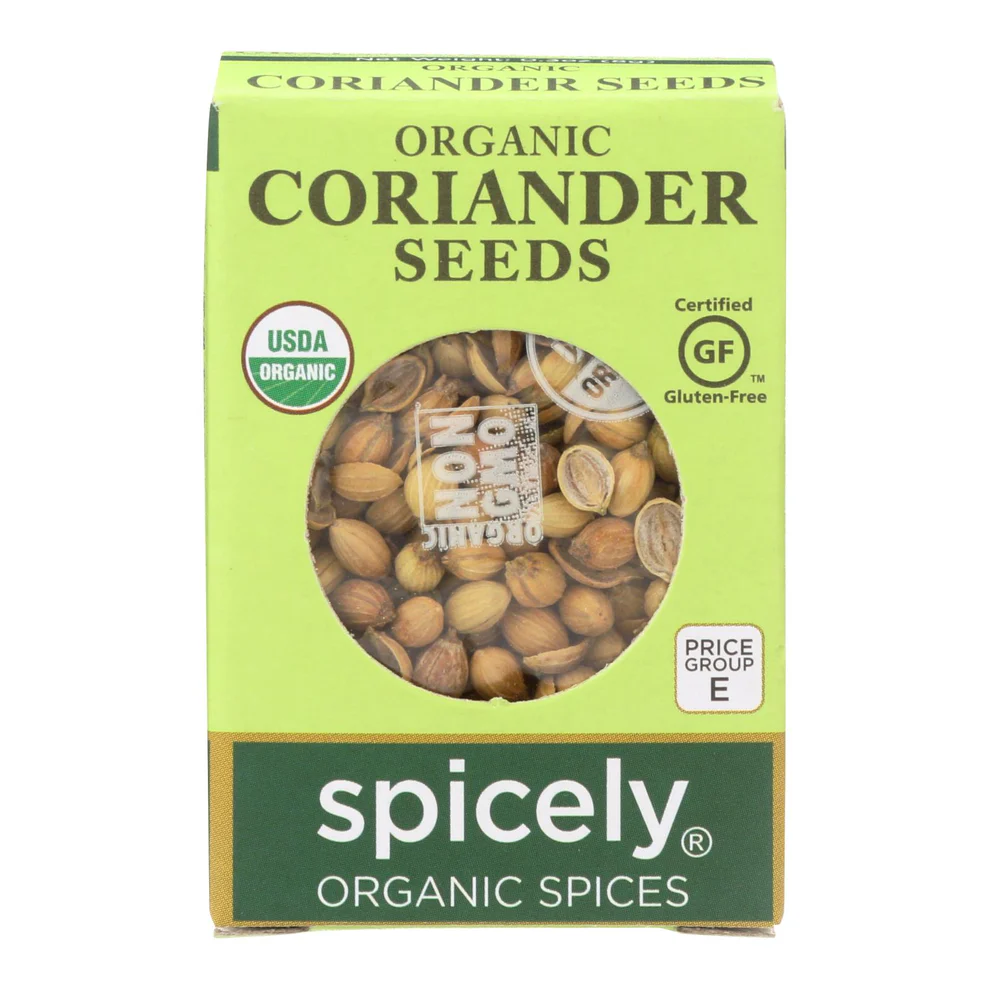
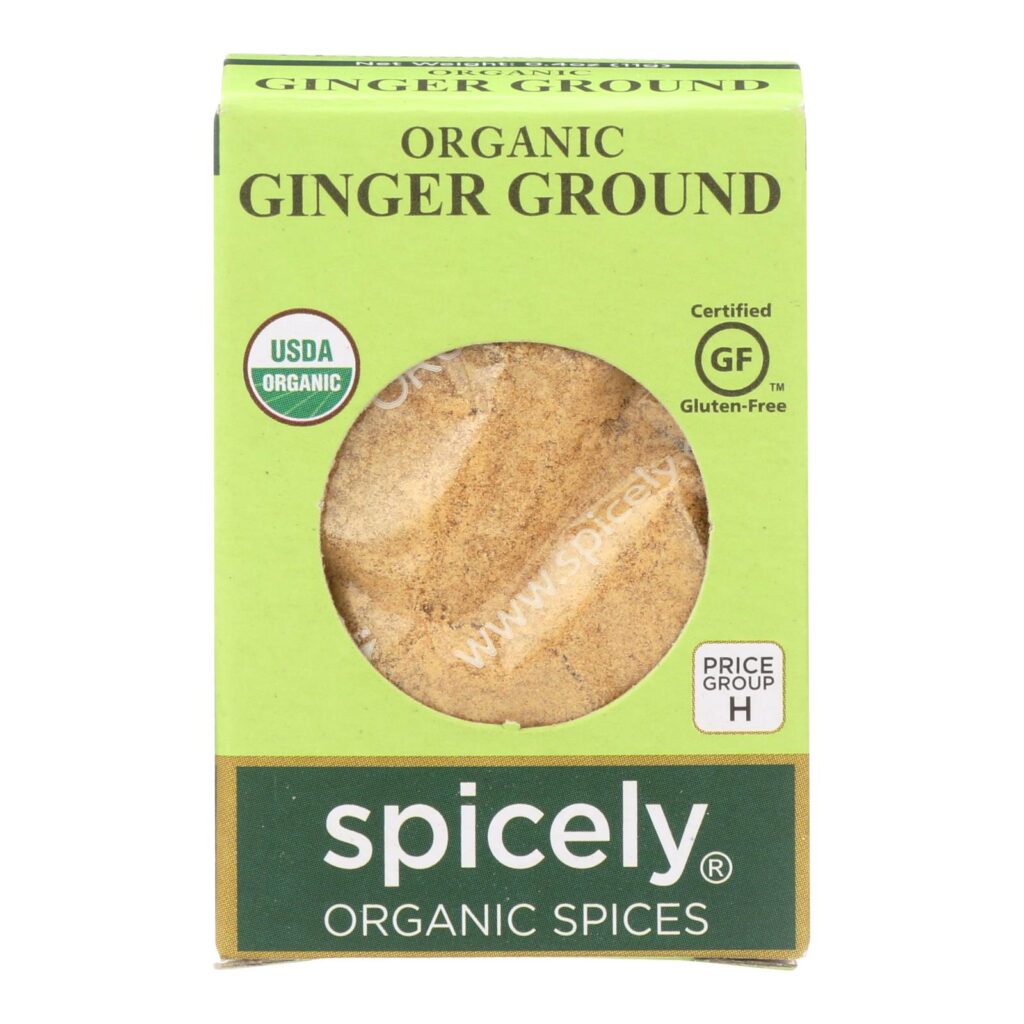

© 2023 The Natural Law | Privacy Policy | Terms of Use
